Brain Quotes
Quotes tagged as "brain"
Showing 211-240 of 1,508

“We now know that groups of neurons create new connections and pathways among themselves every time we acquire a new skill.
Computer scientists use the term "open architecture" to describe a system that is versatile enough to change--or rearrange--to accommodate the varying demands on it.”
― Proust and the Squid: The Story and Science of the Reading Brain
Computer scientists use the term "open architecture" to describe a system that is versatile enough to change--or rearrange--to accommodate the varying demands on it.”
― Proust and the Squid: The Story and Science of the Reading Brain
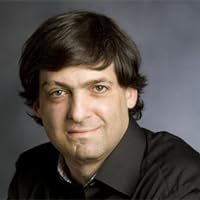
“Stressful conditions tax our cognitive bandwidth, reducing our ability to think clearly and exercise executive control. Stress also hurts our ability to make rational long-term decisions that require delayed gratification. Living in a community in which we feel a sense of trust and support acts as a buffer against the detrimental impact of scarcity. However, a higher level of income inequality in our community can fray our sense of social trust.”
― Misbelief: What Makes Rational People Believe Irrational Things
― Misbelief: What Makes Rational People Believe Irrational Things

“The frontal cortex is the last brain region to fully mature, with the most evolutionarily recent subparts the very last. Amazingly, it's not fully online until people are in their midtwenties.”
― Behave: The Biology of Humans at Our Best and Worst
― Behave: The Biology of Humans at Our Best and Worst

“Interestingly, pathological liars have atypically large amounts of white matter in the prefrontal cortex, indicating more complex wiring.”
― Behave: The Biology of Humans at Our Best and Worst
― Behave: The Biology of Humans at Our Best and Worst
“You remember your pre-internet brain, and you remember doing those things, but you don’t really remember how it felt. You don’t really remember how time felt. There’s that guy who wrote that book, I can’t remember what it’s called, fuckin’ genius guy. But he’s saying that the world has always been informed by people who read books, and not necessarily academically, but the concept of a narrative is very important to people’s lives. Those people grew up with not necessarily a sense of purpose, but a sense that your life is leading somewhere. That’s the way I relate to my music, because I see The 1975 as this story. But as we go into the future, the world is gonna start being informed by people who didn’t grow up with that narrative — who grew up with more of a sense of immediacy. And we start to feel more like a unit amongst other units, and everything becomes a lot more compartmentalized. So when we talk about Twitter, we know that we were happy before, but we can’t remember how it felt, so we won’t take the risk to leave it. The generation after us now, they don’t have that weird nostalgia or sense that something’s wrong: ‘I didn’t used to do this. I didn’t used to need this.”
―
―

“…we use the dopaminergic power of the happiness of pursuit to motivate us to work for rewards that come -after we are dead- depending on your culture, this can be knowing that your nation is closer to winning a war because you’ve sacrificed yourself in battle, that your kids will inherit money because of your financial sacrifices, or that you will spend eternity in paradise. It is extraordinary neural circuitry that bucks temporal discounting enough to allow (some of) us to care about the temperature of the planet that our great-grandchildren will inherit. Basically, it’s unknown how we humans do this. We may merely be a type of animal, mammal, primate, and ape, but we’re a profoundly unique one.”
― Behave: The Biology of Humans at Our Best and Worst
― Behave: The Biology of Humans at Our Best and Worst

“[...] A diet of constant, stimulating activity is the best prescription for our troubles. It keeps the brain in a state of constant change, flow, confirmation, and anticipation, thereby reducing the noise, fragility, self-doubt, and stagnation with which we all have to contend.”
― A User's Guide to the Brain: Perception, Attention, and the Four Theaters of the Brain
― A User's Guide to the Brain: Perception, Attention, and the Four Theaters of the Brain

“Don’t let words come out of your mouth before their essential meaning first enters your brain. And don’t let these words and their meaning reach your brain before they pass through your heart. Every understanding and every expression should always receive blessings from a loving heart.”
― NOVEL PHILOSOPHY: New ideas about Ethics, Epistemology, Science and the sweet Life
― NOVEL PHILOSOPHY: New ideas about Ethics, Epistemology, Science and the sweet Life

“Researchers have shown that the flooding of stress hormones resulting from a traumatic separation from your parents at a young age kills off so many dendrites and neurons in the brain that it results in permanent psychological and physical changes. One psychiatrist I went to told me that my brain looked like a tree without branches.
So I just think about all the children who have been separated from their parents, and there's a lot of us, past and present, and some under more traumatic circumstances than others--like those who are in internment camps right now--and I just imagine us as an army of mutants. We’ve all been touched by this monster, and our brains are forever changed, and we all have trees without branches in there, and what will happen to us? Who will we become? Who will take care of us?”
― The Undocumented Americans
So I just think about all the children who have been separated from their parents, and there's a lot of us, past and present, and some under more traumatic circumstances than others--like those who are in internment camps right now--and I just imagine us as an army of mutants. We’ve all been touched by this monster, and our brains are forever changed, and we all have trees without branches in there, and what will happen to us? Who will we become? Who will take care of us?”
― The Undocumented Americans

“The brain is wider than the sky,
For, put them side by side,
This one the other will include
With ease, and you beside.”
―
For, put them side by side,
This one the other will include
With ease, and you beside.”
―
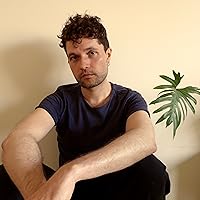
“Your brain's a static thing, stodgy, old, and you need to hold everything in distinct linear blocks. But life isn't like this - it doesn't come in neat episodes, it leaks and twists and knots and coils.”
― Kala
― Kala

“Brain used to lift the world,
is the only human brain.
All else is mindless protoplasm,
ever-consumed with greed and gain.”
― Insan Himalayanoğlu: It's Time to Defect
is the only human brain.
All else is mindless protoplasm,
ever-consumed with greed and gain.”
― Insan Himalayanoğlu: It's Time to Defect

“Obviously my mind is not what it was, she said.
Most of my facts have disappeared, but certain
underlying principles have been in consequence
exposed with surprising clarity.”
― Winter Recipes from the Collective
Most of my facts have disappeared, but certain
underlying principles have been in consequence
exposed with surprising clarity.”
― Winter Recipes from the Collective

“Over the last few decades there have been some fascinating studies that revealed that people who get a physical reaction from music might have structural differences in their brain. Some people have a physical response while others will just hear the songs, enjoy it, but it doesn’t transport them anywhere. Brain scans have shown that the people who get a more palpable response have a higher volume of fibres that connect their auditory cortex to the areas associated with emotional processing, which means the two areas communicate better. They also tend to have a higher prefrontal cortex, which is involved in certain areas of understanding, like interpreting the world more metaphorically, and that obviously helps them develop not just a natural gift interpreting music, but also creating it.”
― Electrasy: Calling All The Dreamers
― Electrasy: Calling All The Dreamers
“God knows your frame, that part of you the world cannot see, understand or appreciate now. He knows the capacity of the brain he has given you, he knows how much food your body needs per day. He knows how emotional you are. What thrills me more is that He knows how to manage you!”
―
―
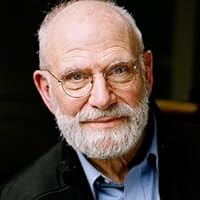
“He faced me as he spoke, was oriented towards me, and yet there was something the matter—it was difficult to formulate. He faced me with his ears, I came to think, but not with his eyes. These, instead of looking, gazing, at me, ‘taking me in’, in the normal way, made sudden strange fixations—on my nose, on my right ear, down to my chin, up to my right eye—as if noting (even studying) these individual features, but not seeing my whole face, its changing expressions, ‘me’, as a whole. I am not sure that I fully realized this at the time—there was just a teasing strangeness, some failure in the normal interplay of gaze and expression. He saw me, he scanned me, and yet...”
― The Man Who Mistook His Wife for a Hat and Other Clinical Tales
― The Man Who Mistook His Wife for a Hat and Other Clinical Tales

“He recognized a portrait of Einstein because he picked up the characteristic hair and moustache; and the same thing happened with one or two other people. ‘Ach, Paul!’ he said, when shown a portrait of his brother. ‘That square jaw, those big teeth— I would know Paul anywhere!’ But was it Paul he recognized, or one or two of his features, on the basis of which he could make a reasonable guess as to the subject’s identity?”
― The Man Who Mistook His Wife for a Hat and Other Clinical Tales
― The Man Who Mistook His Wife for a Hat and Other Clinical Tales

“...he approached these faces— even of those near and dear—as if they were abstract puzzles or tests. He did not relate to them, he did not behold. No face was familiar to him, seen as a ‘thou’, being just identified as a set of features, an ‘it’. Thus, there was formal, but no trace of personal, gnosis. And with this went his indifference, or blindness, to expression. A face, to us, is a person looking out—we see, as it were, the person through his persona, his face.”
― The Man Who Mistook His Wife for a Hat and Other Clinical Tales
― The Man Who Mistook His Wife for a Hat and Other Clinical Tales

“I had stopped at a florist on my way to his apartment and bought myself an extravagant red rose for my buttonhole. Now I removed this and handed it to him. He took it like a botanist or morphologist given a specimen, not like a person given a flower. About six inches in length,’ he commented. ‘A convoluted red form with a linear green attachment.”
― The Man Who Mistook His Wife for a Hat and Other Clinical Tales
― The Man Who Mistook His Wife for a Hat and Other Clinical Tales

“It’s just like the eating,’ she explained. ‘I put his usual clothes out, in all the usual places,
and he dresses without difficulty, singing to himself. He does everything singing to himself. But if he is interrupted and loses the thread, he comes to a complete stop, doesn’t know his clothes—or his own body. He sings all the time—eating songs, dressing songs, bathing songs, everything. He can’t do anything unless he makes it a song.”
― The Man Who Mistook His Wife for a Hat and Other Clinical Tales
and he dresses without difficulty, singing to himself. He does everything singing to himself. But if he is interrupted and loses the thread, he comes to a complete stop, doesn’t know his clothes—or his own body. He sings all the time—eating songs, dressing songs, bathing songs, everything. He can’t do anything unless he makes it a song.”
― The Man Who Mistook His Wife for a Hat and Other Clinical Tales

“Jimmie both was and wasn’t aware of this deep, tragic loss in himself, loss of himself. (If a man has lost a leg or an eye, he knows he has lost a leg or an eye; but if he has lost a self—himself—he cannot know it, because he is no longer there to know it.)”
― The Man Who Mistook His Wife for a Hat and Other Clinical Tales
― The Man Who Mistook His Wife for a Hat and Other Clinical Tales

“...he solved all the puzzles, and could solve them easily; and he was far better and sharper than anyone else at games. And as he found this out, he grew fretful and restless again, and wandered the corridors, uneasy and bored and with a sense of indignity—games and puzzles were for children, a diversion. Clearly, passionately, he wanted something to do: he wanted to do, to be, to feel—and could not; he wanted sense, he wanted purpose...”
― Gratitude
― Gratitude
“The power of thought is like a flame,
Burning bright within our brain,
It starts with a seed in the mind's eye,
And grows into a vision that can touch the sky.”
―
Burning bright within our brain,
It starts with a seed in the mind's eye,
And grows into a vision that can touch the sky.”
―

“The whole-language trend assumes that reading is a natural, genetically programmed part of language development, and that children will pick it up as easily as speaking. However, as noted, since writing has only existed for 5,ooo years and literacy has only been widespread for a few centuries, it is highly unlikely that the human brain has evolved structures specifically for reading and writing in this time. It is our ability to learn through experience that allows us to achieve reading, but only with explicit instruction.”
― A User's Guide to the Brain: Perception, Attention, and the Four Theaters of the Brain
― A User's Guide to the Brain: Perception, Attention, and the Four Theaters of the Brain
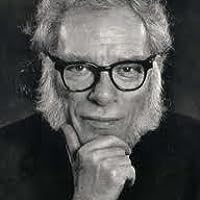
“What a brain is made of isn't the essential thing: it's how the brain functions. Its thought patterns, its reaction time, its ability to reason and generalise from experience. Why does the whole issue have to be drown down to the level of organic cells versus positrons?”
― The Positronic Man (Robot # 0.6) [Annotated]
― The Positronic Man (Robot # 0.6) [Annotated]
“In comparing social with cerebral organisations one important feature of the brain should be kept in mind; we find no boss in the brain, no oligarchic ganglion or glandular Big Brother. Within our heads our very lives depend on equality of opportunity, on specialisation with versatility, on free communication and just restraint, a freedom without interference. Here too local minorities can and do control their own means of production and expression in free and equal intercourse with their neighbours. If we must identify biological and political systems our own brains would seem to illustrate the capacity and limitations of an anarcho-syndicalist community.
~ Grey Walter ‘The Development and Significance of Cybernetics”
― Anarchism for Beginners
~ Grey Walter ‘The Development and Significance of Cybernetics”
― Anarchism for Beginners
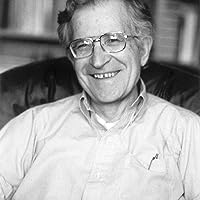
“Darwin asked rhetorically why “thought, being a secretion of the brain,” should be considered “more wonderful than gravity, a property of matter.”
― Language and Mind
― Language and Mind

“Деякі види настільки зневажають мозок, що ставляться до нього, як до одноразової розкоші. В одного виду морських слимаків замолоду є якийсь невеликий мозок. Вони користуються ним, поки плавають по морях, шукаючи укриття, де б можна було постійно отримувати їжу з води. Щойно таке укриття знаходиться, це дороге в обслуговуванні обладнання їм більше не потрібне і... вони його зʼїдають. (Дехто доволі жорстко пожартував, що це трохи нагадує академіків на безстроковому контракті).”
― Origin Story: A Big History of Everything
― Origin Story: A Big History of Everything
All Quotes
|
My Quotes
|
Add A Quote
Browse By Tag
- Love Quotes 97k
- Life Quotes 75.5k
- Inspirational Quotes 72.5k
- Humor Quotes 43.5k
- Philosophy Quotes 29.5k
- Inspirational Quotes Quotes 27k
- God Quotes 26k
- Truth Quotes 23.5k
- Wisdom Quotes 23.5k
- Romance Quotes 23k
- Poetry Quotes 22k
- Death Quotes 20k
- Happiness Quotes 18.5k
- Life Lessons Quotes 18.5k
- Hope Quotes 18k
- Faith Quotes 18k
- Quotes Quotes 16.5k
- Inspiration Quotes 16.5k
- Spirituality Quotes 15k
- Religion Quotes 15k
- Motivational Quotes 15k
- Writing Quotes 14.5k
- Relationships Quotes 14.5k
- Life Quotes Quotes 14k
- Love Quotes Quotes 13.5k
- Success Quotes 13.5k
- Time Quotes 12.5k
- Motivation Quotes 12k
- Science Quotes 11.5k
- Knowledge Quotes 11k


